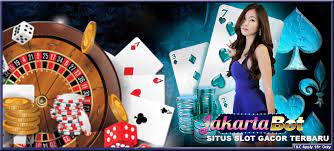Introduction
Jackpots have long captivated the imagination of millions around the world. Whether it’s the thrill of a lottery win or the spin of a slot machine, the allure of hitting the jackpot promises life-changing rewards and a surge of excitement. This article delves into the origins, types, and impact of jackpots, exploring how they function and why they continue to be so sabung ayam online.
Origins of the Jackpot
The term “jackpot” originated from the game of poker in the 19th century. In the early days, it referred to a large pot that could only be won if a player had a specific hand, often a pair of jacks or better. Over time, the concept of a jackpot expanded beyond poker to encompass various games of chance.
Types of Jackpots
- Lottery Jackpots: Lotteries are perhaps the most famous form of jackpot. Players purchase tickets with a set of numbers, and a drawing determines the winning combination. Lottery jackpots can reach staggering amounts, especially in multi-state or national lotteries. The largest lottery jackpots often accumulate over time through rollovers, where no one wins the top prize in a drawing, causing the jackpot to grow.
- Slot Machine Jackpots: Slot machines, found in casinos and online gaming platforms, offer another popular type of jackpot. These machines operate on a combination of luck and probability. There are various types of slot jackpots:
- Fixed Jackpots: The prize amount remains constant and does not change.
- Progressive Jackpots: The jackpot increases with each spin or bet until someone wins. This type of jackpot often spans multiple machines or casinos, creating enormous prize pools.
- Local Jackpots: These are confined to a single machine or casino and tend to be smaller than progressive jackpots but still substantial.
- Video Game and Online Casino Jackpots: The digital age has introduced jackpots into the realm of video games and online casinos. These jackpots function similarly to traditional slot machines but are often integrated into a variety of game genres, offering players a chance to win substantial prizes through gameplay achievements or random triggers.
How Jackpots Work
The mechanics of jackpots are rooted in probability and randomness. For lotteries, the odds of winning the jackpot are determined by the number of possible number combinations. In slot machines, a Random Number Generator (RNG) ensures that each spin is independent and random, creating a fair chance for every player.
Impact of Jackpots
Jackpots have a significant impact on both individuals and society:
- Personal Impact: Winning a jackpot can be life-altering, providing financial freedom and opportunities that were previously out of reach. However, the sudden wealth can also bring challenges, such as managing finances, coping with sudden attention, and maintaining personal relationships.
- Economic Impact: Jackpots generate substantial revenue for governments and casinos. Lottery proceeds often fund public services, such as education and infrastructure. Casinos use jackpots as a marketing tool to attract players, creating jobs and stimulating local economies.
- Social Impact: The allure of jackpots can drive gambling behaviors, leading to both positive and negative consequences. While jackpots provide excitement and hope, they can also contribute to gambling addiction and financial hardship for some individuals.
Conclusion
Jackpots embody the excitement of chance and the dream of sudden fortune. From lottery drawings to slot machines and online games, they offer a tantalizing possibility of a life-changing win. Understanding the origins, mechanics, and impact of jackpots helps illuminate their role in our entertainment landscape and underscores the importance of responsible gambling practices. As we continue to seek our own lucky break, the world of jackpots remains a testament to the enduring human fascination with luck and chance.
